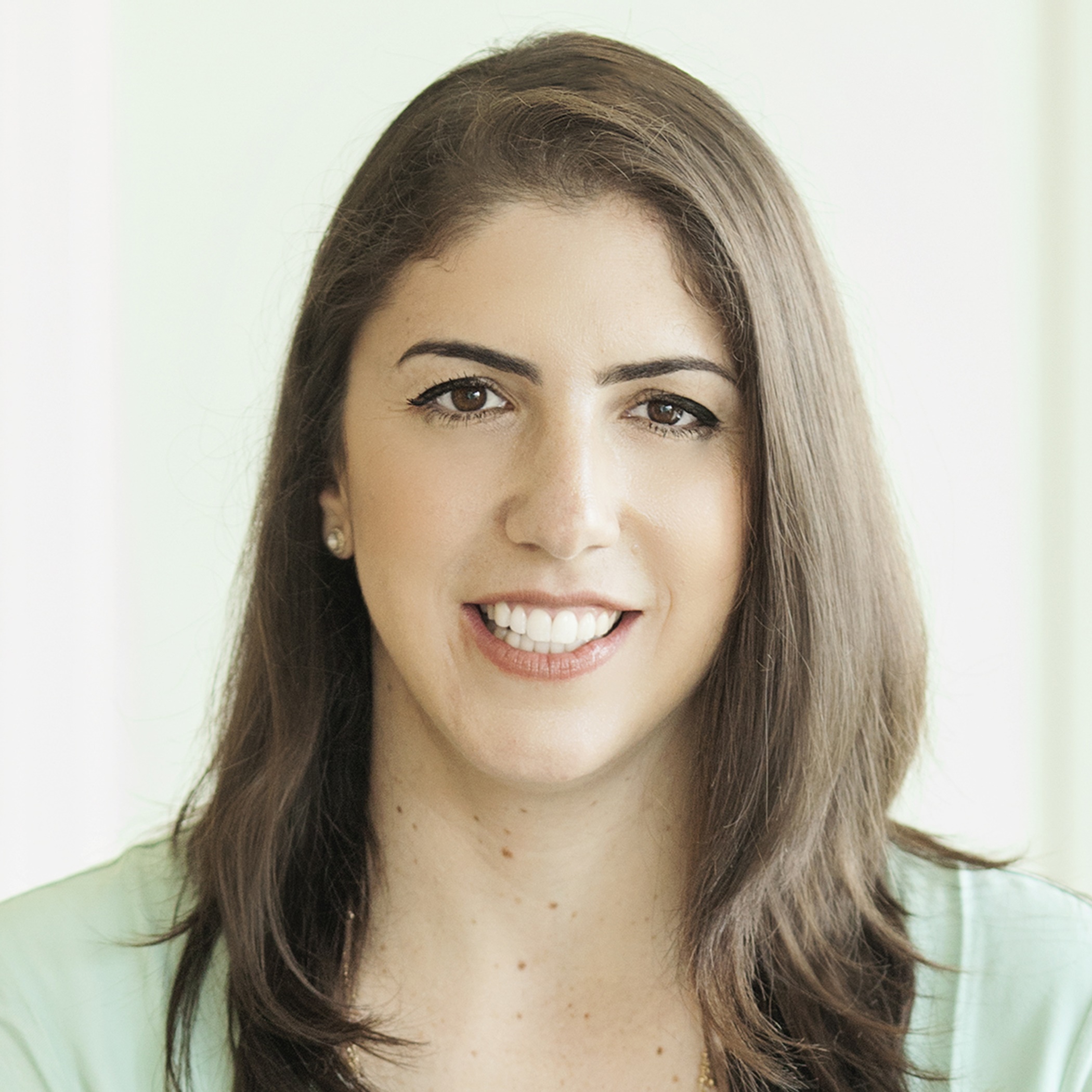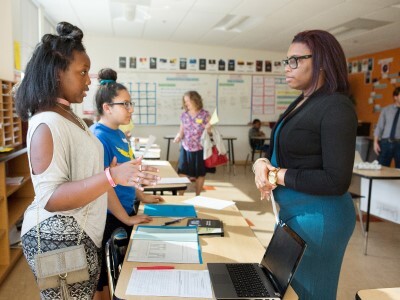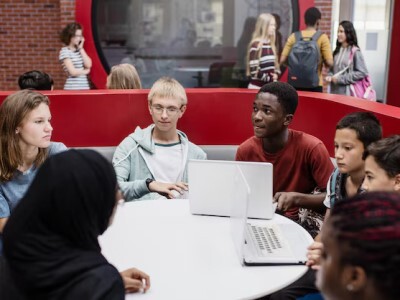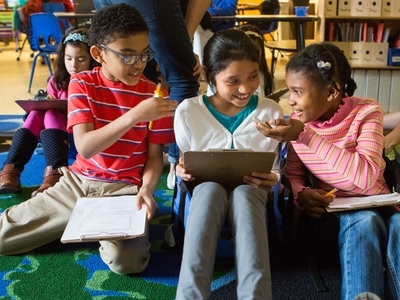Personalized & Competency-Based Approaches Shape Learning in Two New Philadelphia High Schools
Topics
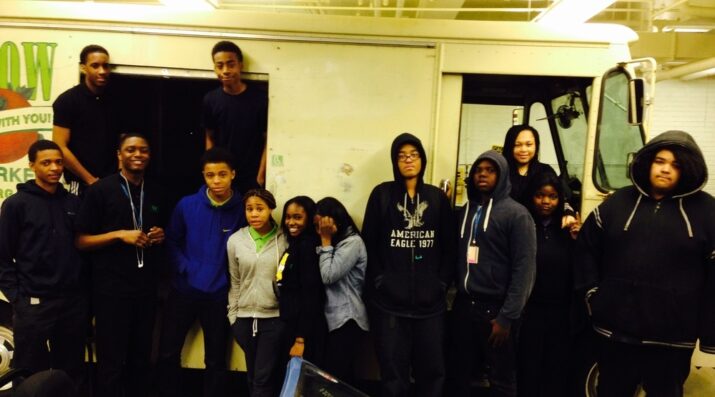
We’ve all had the experience of truly purposeful, authentic learning and know how valuable it is. Educators are taking the best of what we know about learning, student support, effective instruction, and interpersonal skill-building to completely reimagine schools so that students experience that kind of purposeful learning all day, every day.
Practitioner's Guide to Next Gen Learning
On a recent visit to two Philadelphia high schools, school leaders demonstrated how personalized, technology-enabled, and competency-based learning can flourish in varying contexts and communities.
At NGLC, we’re proud of our track record of investing in innovation wherever we find it. To date, roughly 65% of our K-12 school grants have been made to charter schools and 35% to district schools.
In our selection process, we look for ways to show how personalized, technology-enabled, and competency-based learning can flourish in a variety of contexts and communities.
I wanted to share a few insights from a recent visit to two NGLC schools in Philadelphia: The Workshop School and Building 21. Both schools are non-selective district high schools that begin with cohorts of 9th graders who are often many years below grade level in reading and math. Both schools are located in low-income, African-American communities and serve a student population that is at least 25% special needs.
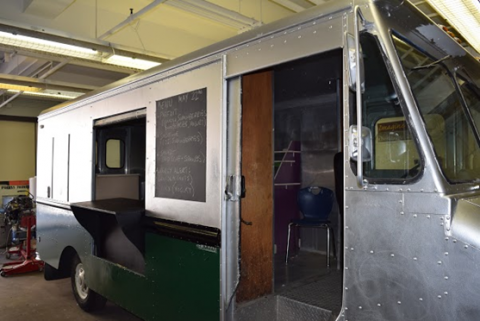
Workshop students have built their own food truck business combining a study of nutrition, economics, communication, and design.
The Workshop School
The Workshop School model emerged from the founders’ experience in an afterschool engineering and design program for students in west Philadelphia. Interest and engagement soared when students were given real-world problems to solve and empowered to come up with their own solutions. The Workshop School opened in fall 2013 with 90 students. Listen to NPR’s podcast covering the school in its first year.
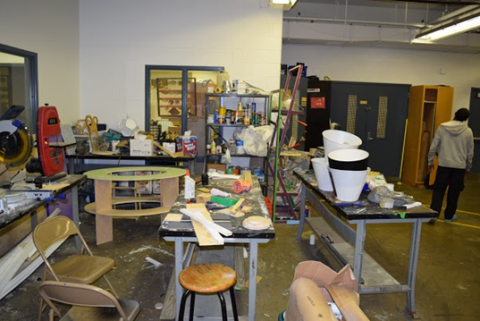
The bottom floor of the Workshop School is a real, live workshop that houses both old-fashioned tools such as power drills as well as technology-enabled tools
This year, the school’s 10th graders will participate in The Gateway Project, which is an opportunity for students to show that they’re ready to be promoted to the Upper House. The school’s Upper House program involves more time spent on offsite internships, access to college classes, and the opportunity for students to design their own projects. In order to prepare for this process, students must assemble a portfolio of their best work, analyze that work thoughtfully and critically, and present the analysis in a series of written essays. The Gateway Project culminates in a student presentation to a panel of reviewers, where only one of whom is a member of the school staff. Reviewers may assign one of three ratings:
- Passing: The student’s work shows that they are ready for the Upper House.
- Passing, with revisions: The student must revise their portfolio and have it approved by their teacher in order to show that they are ready for the Upper House.
- Not passing: The student’s work shows that they are not yet ready for the Upper House.
Workshop co-founder Matthew Riggan anticipates that the Gateway Project will prove a litmus test to the competency-based approach to learning. Stay tuned to hear more about Workshop’s journey.
Building 21
Nonprofit leader Laura Shubilla first met entrepreneur Chip Linehan when both were doctoral students at Harvard. There they co-developed a vision for a competency-based, technology-enabled K-12 model that could be replicated in other settings. The core of their model is a true belief in students learning individualized content at an individualized pace, progressing along a continuum until they achieve mastery.

Access Building 21’s open source Competency Framework and Toolkit
Building 21 has come impressively far in the development of its customized dashboards on the open source platform, Slate, to support the model. The dashboards within Slate provide customized data to teachers and students. Each student has a Personalized Learning Plan (PLP) that helps to track and guide his or her development and growth as well as to catalogue students’ interests, passions, and learning styles. The PLP contains both academic competencies as well as Building 21’s “Habits of Success.” For teachers, the PLP is built around a defined set of teacher competencies required to thrive as an instructional leader in this new model.

See more screenshots of Building 21’s Platform, built using Slate
District Supports
Like many city districts, Philadelphia has experienced a checkered history of school reform efforts. The city and the state have struggled financially to fund education and the per pupil operational allocations rank below many other big cities on the East Coast. Despite the challenges in funding and high rates of organizational change, these two new NGLC high schools have been generally supported and promoted by district leadership.
One mechanism used by both schools to ensure greater stability is the development of affiliate 501(c)3 organizations, which serve as fundraising and R&D arms of the respective schools. School leaders are able to spend money more quickly and nimbly in a nonprofit context. Both schools are committed to being sustainable and replicable on the public dollar.
Are you looking for strong district models of Next Gen learning that are taking on some of the most challenging circumstances in public education? If so, we’d strongly recommend a trip to Philly.

